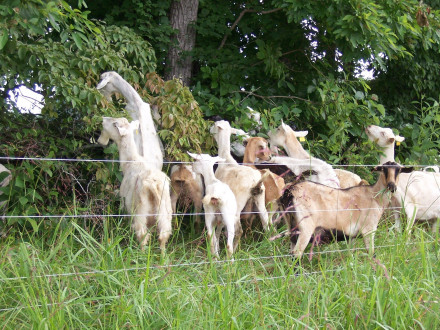Become a Certified Meat Goat Producer
The Master Meat Goat Producer Program is designed as an educational tool to provide information and insight to broaden production management skills and improve the competitiveness in the market place in order to increase profitability for meat goat producers. The Master Meat Goat Producer Program is led by a team of specialists
and agents from Tennessee State University and the University of Tennessee with the support and involvement from representatives of state-level agencies, businesses and organizations that have an interest in the states’ meat goat industry.
The Master Meat Goat Producer Program will:
- Include 13 educational topics that focus on meat goat production and issues facing the meat goat industry.
- Enhance the profitability and competitiveness of meat goat producers by providing essential, technical and practical information.
- Provide participants with a meat goat reference manual that covers in detail the educational (technical and practical) information presented in the sessions.
- Encourage producers to interact with trained facilitators and encourages the sharing of ideas with other producers.

What are the benefits of the Master Meat Goat Producer Program?
- Participation in educational sessions with specialists that provide opportunities to gain knowledge in meat goat production and marketing.
- A reference manual of the 13 topics covered in the sessions and other valuable information – yearly production calendar, DVD and CD’s.
- An opportunity to identify all the facets of meat goat management and production for a new, novice or experienced producer.
- Participation in the Goat Quality Assurance (GQA) certified producer program.
- Master Meat Goat Producer Certification to qualify for the Tennessee Agriculture Enhancement program through TDA.
The fee for the Master Meat Goat Producer Program is $160.00 which covers the costs of the training sessions, educational manuals and other teaching / instructional materials.